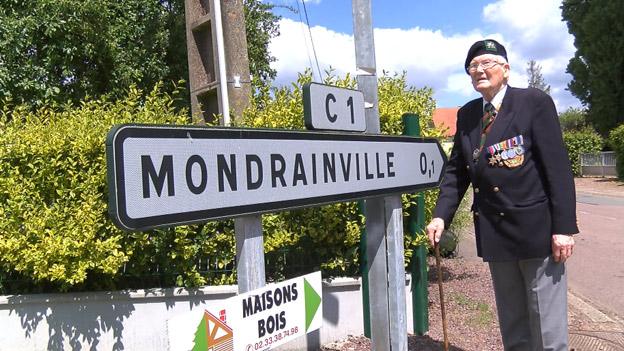World War Two veterans' memories collected for new archive
- Published
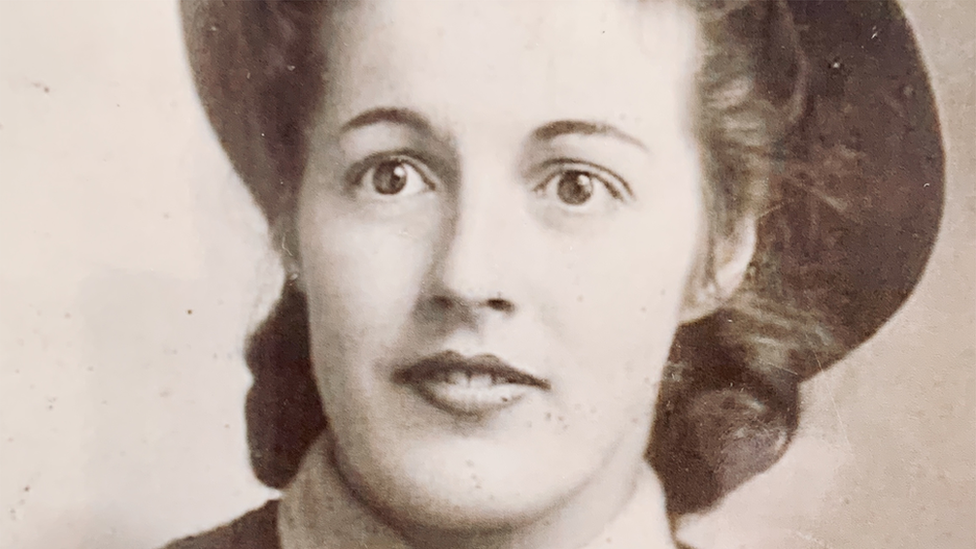
Mary Bott moved from London to Ceredigion in 1944, where she joined the Women's Land Army
Landing on Juno Beach on D-Day, handing memos to Winston Churchill and working as a "land girl" in the Women's Land Army.
These are just some of the remarkable memories of World War Two veterans whose stories are being collected for the West Wales Veterans Archive, which organisers say is an important and timely reminder of a turbulent chapter of history.
About 80,000 members of the Women's Land Army fed the UK during WW2, becoming a powerful rural workforce.
Among them was Mary Bott, 96, who grew up in London to parents from Ceredigion and was sent back to Wales during the war where her family felt she would be safer.
World War Two 'land girls' memories added to archives
In 1944 she became a land girl, working on farms in the county. It was a new world for a city girl.
"It was a different kind of life for me. I'd never had to work so hard in all my life," she recalls.
"My fingers were all marked and cut. It was hard getting up at half past five in the morning and working until seven o'clock at night."
Even fending off the advances of local Italian prisoners of war, interned at the camp in nearby Henllan, was all in a day's work for Mary.
"One of them... came towards me. I can still see him now - he wanted me to go into the woods with him.
"But you didn't see my feet for dust - I was back in that farmhouse before you could shout anything."
Living in the same village as Mary in Aberporth, a few miles north of Cardigan, is another veteran of the War.
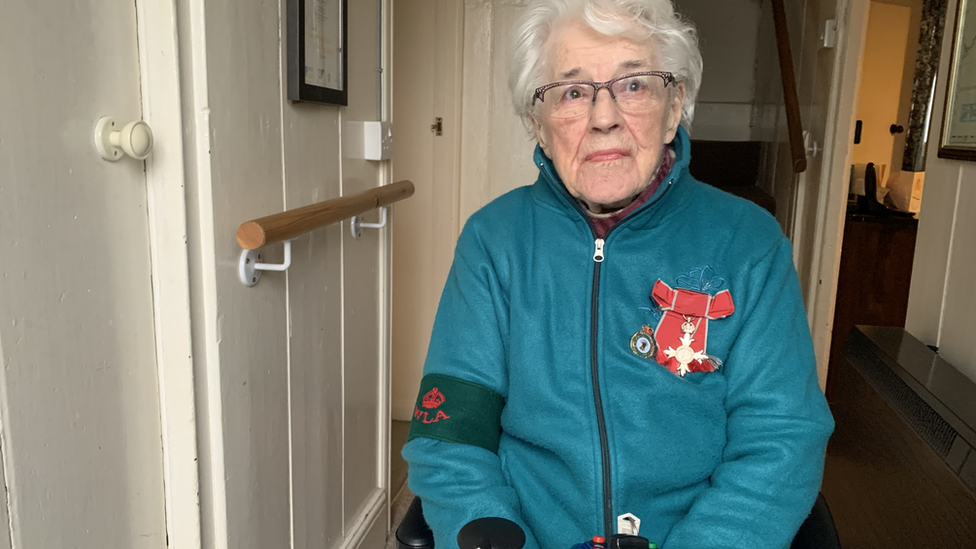
Mary recalls being approached by an Italian prisoner of war
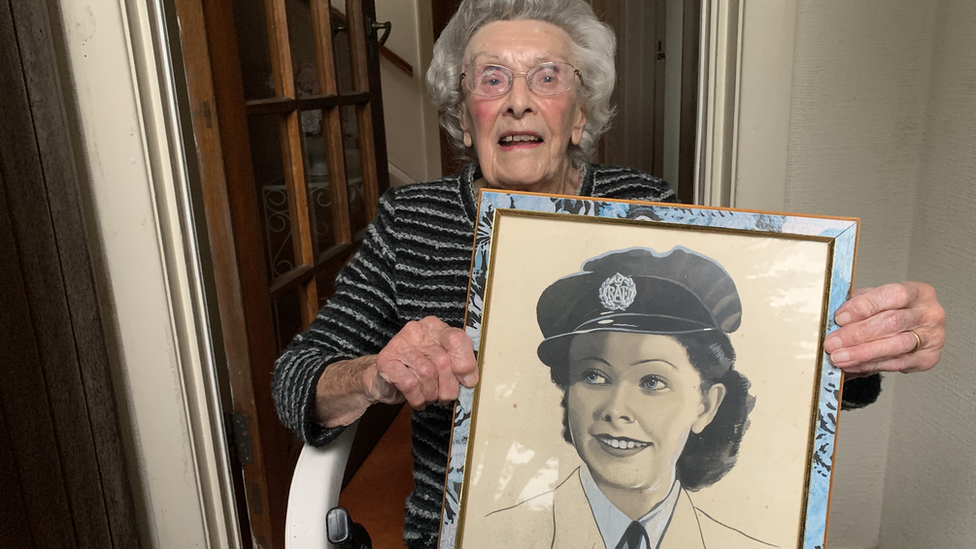
Jean McKay would report bomb damage to Winston Churchill during the Blitz
At just 17 years old, Jean McKay, now 98, got a job working for the Home Office in Whitehall where she had an important task at the start of every day.
"If anything had been bombed the night before, they would send it through on a teleprompter and we'd have to take it down to Mr Churchill in the war rooms and if anything needed repairing, he'd arrange for it to be repaired.
"He was very nice - he just said 'good morning', that was all, but I was only 17 at the time."
Jean craved more excitement though and went on to join the Women's Auxiliary Air Force, where her duties were chosen by accident more than design.
"I had a medical and an intelligence test, then they said to me 'you can be a cook or a meteorologist'," she recalls.
"Well in those days I had no idea what a meteorologist was, but it sounded a darn sight better than a cook so I said I'd do that."
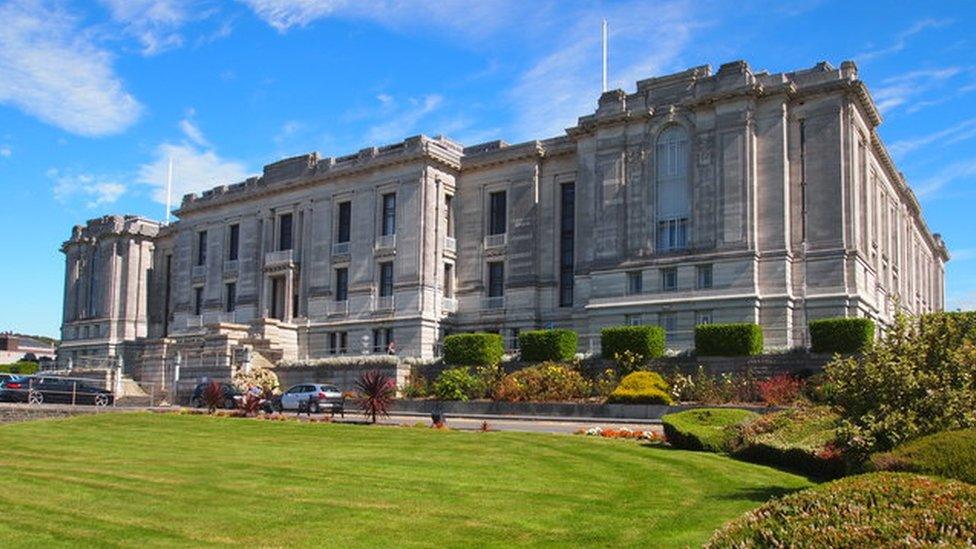
The archive will be kept online and at the National Library of Wales in Aberystwyth
Mary and Jean's stories, and many more like them, are being collected by the charity Age Cymru to form the West Wales Veterans Archive, which will be located online and at the National Library of Wales in Aberystwyth.
"We've heard some amazing stories," says Hugh Morgan from the charity.
"One gentleman who landed on Juno beach at 09:30 on the morning of D-Day - 6 June 1944 - who then went down to the Ardennes Forest and the Battle of the Bulge.
"Another gentleman who is now 99 years old who was at RAF Duxford during the Battle of Britain on ground crew.
"We just felt it was an opportunity to capture these stories, both for our benefit and for future generations, and also for the veterans themselves."
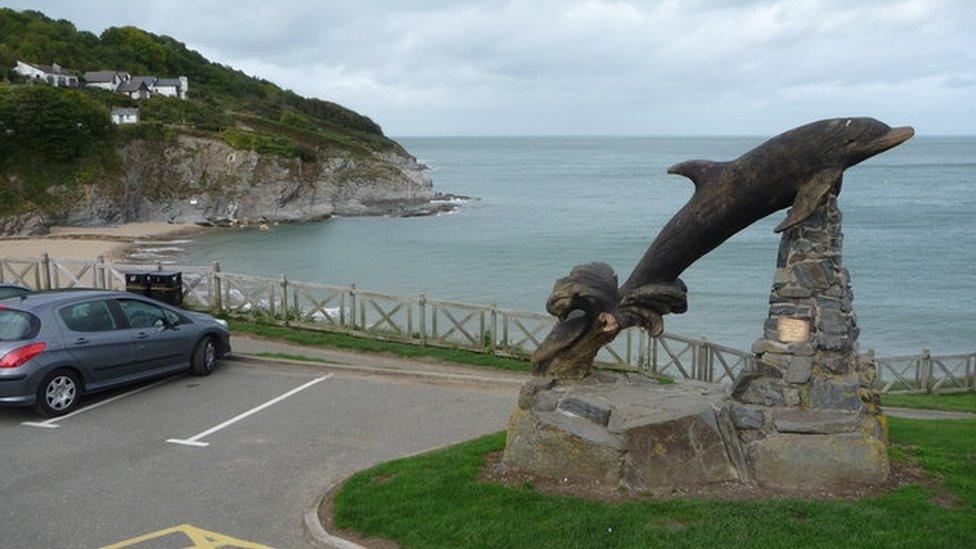
Both Mary and Jean now live in Aberporth, a few miles north of Cardigan
Eventually Jean retired to Aberporth where her husband worked for the Met Office.
Mary, who was appointed MBE for services to her community, stayed in west Wales after the war and became a primary school teacher.
"We don't want another war, do we," reflected Jean.
"Lots of the young men I knew in the Home Office went off to war and were all killed within a matter of weeks. It was very sad. We lost a whole generation of men during the war."
For Mary, the archive will help younger people learn about the history of the country they live in.
"It's all our history - they should know about the history of the country where they live," she says.
"They should be proud and know that people helped each other during the war."
Related topics
- Published6 June 2019
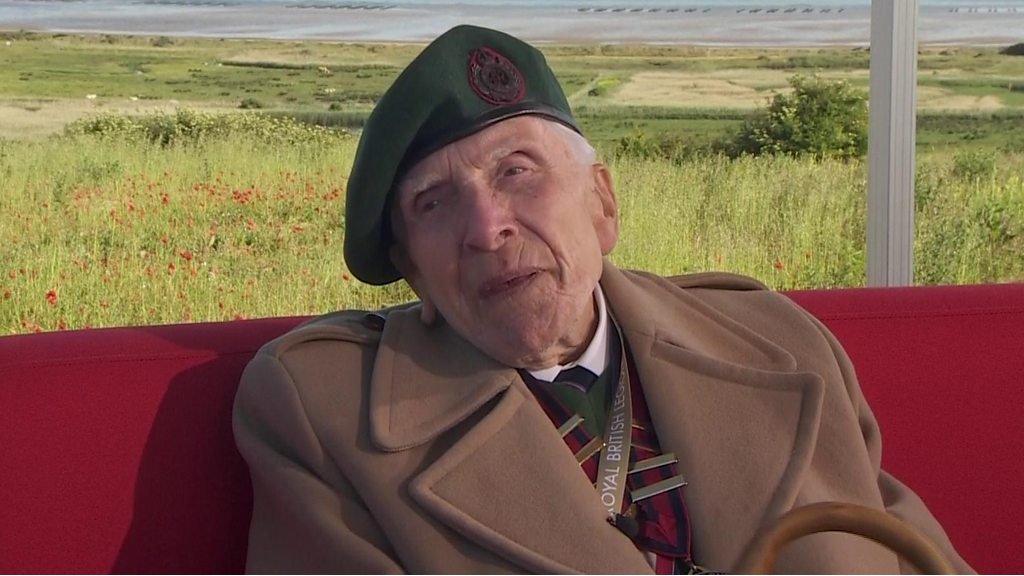
- Published6 June 2019
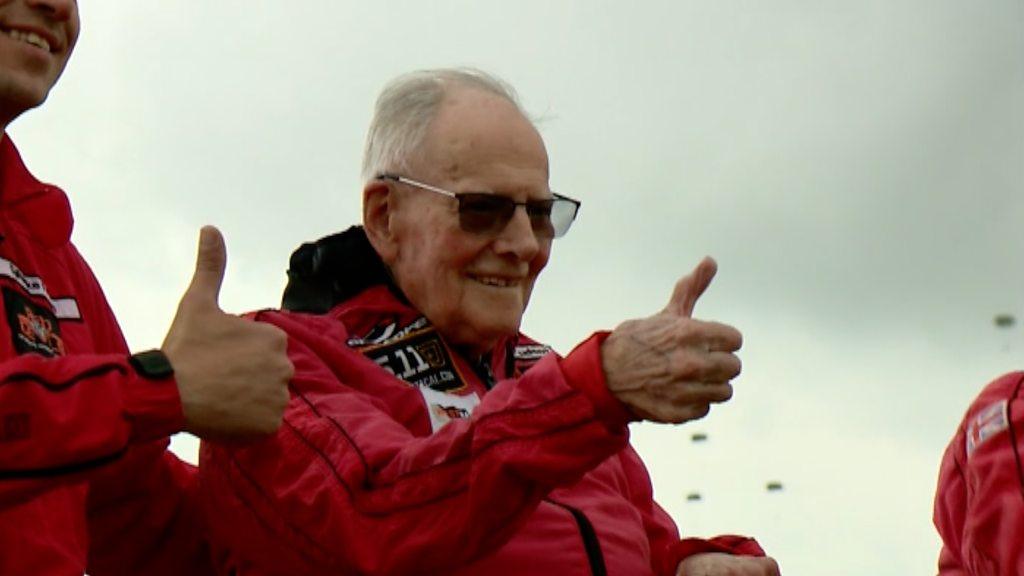
- Published6 June 2014
